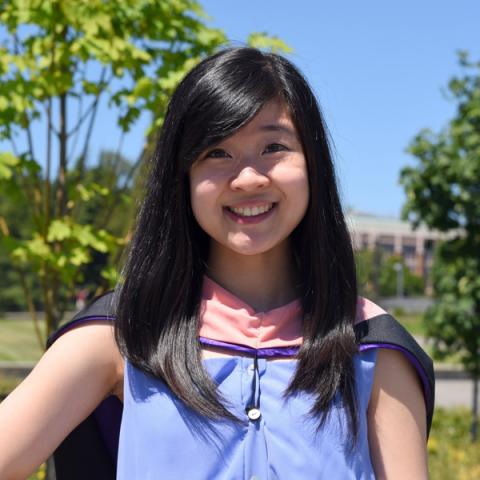Why did you decide to major in PH-GH as an undergraduate?
I had a strong desire to broaden my awareness and improve my understanding on the social, cultural and political factors that affect one’s health so that I can comprehensively address health concerns at the community level.. I was and am continually driven by the health disparities that I see in my backyard, especially among underrepresented populations. I wanted to learn the necessary skills to be an effective public health leader and advocate, including building community involvement and immersing myself more in underserved communities.
What have you been up to since graduating?
I went back to the UW to pursue a master’s in Health Administration, and after graduating in 2016, I worked at Sea Mar Community Health Centers as a clinic manager, and then as a quality/clinical outcomes manager before transitioning to my current role at UW Medicine. With my strong desire to give back to the UW by mentoring students as well as alumni who have just started their careers, I have served as a Husky Leadership Certificate mentor as part of the CELE Center. I’m also currently on two boards for the following organizations: UW Master of Health Administration Alumni Association and Vietnam Health Clinic. I also got married to my wonderful husband and we bought a house together!
What’s your current job and how does it relate to public health?
I am currently working as a project manager/internal consultant in the Digital Health Office at UW Medicine. I partner with various departments and service lines to provide project management services to deliver alternative access points for patients to receive care such as via telehealth. In relation to public health, telehealth helps to expand access to the underserved and address certain health care access barriers such as transportation or mobility issues. I am excited to be at the forefront of this exponentially growing digital health field and use technologies in ways that can transform public health and health care practice.
What is something you learned from studying public health that has been useful to you since graduating?
Studying public health has allowed me to continuously apply an approach considering multiple factors and understanding towards improving the health of populations in an equitable way. For instance, because I’m working in the digital health space, there are various social determinants of health at play in digital health care access, including having broadband internet, digital literacy, reimbursement policies and making patient education materials available in different languages. Therefore, I strive to ensure that our patients and communities have equitable access to these digital health tools.
What is something you wish the general population knew about public health that might not be talked about?
Public health was highly emphasized during the COVID-19 pandemic where it was mostly related to hand hygiene and infection control, and I think this is a great start to getting the exposure it deserves. However, I want the general population to know that public health is more than this — it’s also about having a multi- and inter-disciplinary lens in exploring and addressing today’s health concerns, which leads into a multitude of sub areas. This includes health administration, policy, global health, nutrition, safety, health education, mental health and so much more.
What impact do you hope to have on the public health of your communities?
I hope to leverage our various community voices, especially the underserved, into conversations about health disparities and creating solutions together with those in the public health and health care workforce. I want to uplift these communities so that they are at the table with health care leaders and a part of the decision-making process in addressing the health inequities that impact them. These communities are experts on their own health and I want to ensure that they have space to voice their experiences and see that their voices do make a difference for the greater population’s health.
What advice do you have for public health students entering the workforce?
It’s ok to not have your career aspirations completely figured out by the time you enter the workforce — this is normal. I am still figuring this out myself. You always learn more about yourself and your interests with every work experience, so do the best you can in your job roles, be patient and remember that all career journeys are circuitous, not linear.
This profile is part of a series celebrating the 10th Anniversary of our Public Health-Global Health Major.


